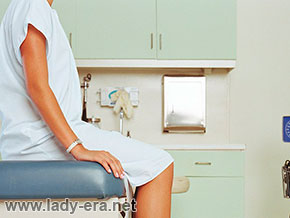Visiting Gynecologist – Facts Woman Should Know

A gynecologist is a doctor, who specializes in the female reproductive system. A general physician can deal with minor health issues related to female health, but a gynecologist is in charge of specific aspects of women’s health.
Older women have definitely visited the doctor many times and undergone lots of examinations, while young girls do not know what to expect from the appointment. Female body changes much during adolescence and early adulthood, so regular gynecologist appointments are inevitable for proper development and maturing. Here you will find some recommendations how to behave before, during and after the examination. Besides, you will find the necessary information about dos and don’ts of the experience.
Importance of Regular Doctor’s Appointments

Treatment is the last and the most radical stage of visiting a gynecologist. It is much better to see the doctor in order to get information about the questions that bother you. A completely confidential talk will help you deal with the issues related to menstruation, sexuality, body changes, sex, and many others. Additionally, prevention is an important aspect of the doctor’s practice. Details about a healthy lifestyle, avoidance of sexually transmitted diseases and pregnancy prevention can be discussed with a qualified specialist. Finally, treatment of the already existing disorders is the last, but not the least important responsibility of the doctor.
Stages of Gynecological Examination
Generally, there are three steps you should be ready for:
- Preparation. The time before the examination is vital, as several processes depend on it. You should set an appointment in the middle of the menstrual cycle. Do not have sex the night before it. Do not put anything into the vagina, nor have a vaginal douche two days before the appointment. Consider the questions that disturb you, for you to be ready to speak them out;
- Examination. Take a shower without any powders or creams. Wear uncomplicated and comfortable clothes. The nurse can take blood and urine samples, weigh you and measure the blood pressure before the examination. Then, you need to undress and take on a hospital gown. After a small talk with the doctor about your health state, you will be asked to sit on the examining table and put your feet in the foot stirrups.
- Post examination. Your doctor will tell you about the disorders you have if any. You will be informed about the results of the tests either by e-mail or phone.




